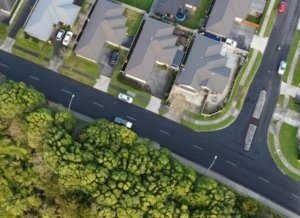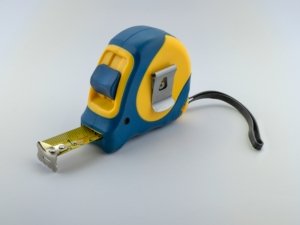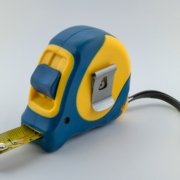Tools Of The Trade – What’s In A Property Inspector’s Kit?
Buying a house is a huge decision, so booking a thorough pre-purchase inspection to ensure you’re investing in a sound property makes a lot of sense.
In addition to their industry expertise, property inspectors today rely on a variety of specialised tools and technology to uncover potential problems lurking beneath the surface – but not all operators and businesses are created equal. Just because they might appear to ‘have the tools’ doesn’t mean they’re the right ones for the job.
That’s why we’re exploring the high-tech gadgets your trusted Property Inspectors team uses and why these tools keep them one step ahead of the rest!
Advanced tech (to see above and beneath the surface)
Drones
High and inaccessible roofs, slippery slopes and tricky angles are easily tackled with inexpensive drones. Equipped with high-resolution cameras, they’ve become a game changer for inspections, since they provide a bird’s-eye view of a property, allowing inspectors to examine hard-to-reach areas like gutters, chimneys, steep slopes, and complex rooflines.

Image credit: Pexels
In Aotearoa New Zealand, rules mean that you can only view off a ladder up to a certain height. Drones not only avoid the health and safety risks of climbing, but also help identify potential issues with shingles, flashing, and other sky-high rooftop components. Dane Robinson of The Property Inspectors says he’s seen plenty of problems on roofs that you wouldn’t normally spot, making drones an essential tool in his arsenal. (For techies, Dane’s team uses the DJI Mini 3 Pro drone.)
Moisture meters
Moisture meters are a popular tool in any tradesperson’s arsenal, since they allow you to detect if there is hidden water in walls, roofs, under floors – anywhere, really. But not all moisture meters are created equally, with a big difference in quality, capability and price on the market.
The Property Inspectors operate the Protec T660 and Protimeter Surveymaster, two professional-grade hand-held moisture meters, ideal for locating and measuring moisture problems in homes and building materials such as timber/wood, gib board etc. These are industry-standard, and a far cry from the $40 model you (or some inspectors) might be able to purchase at a bulk discounter.
Used incorrectly, moisture meters can read results very differently, so operators need to make sure they’re calibrated correctly. Understanding how to use them and interpreting the results is also something an experienced building inspector will know. A high moisture reading doesn’t always equate to ‘wet’: as Dane points out, meters read very differently when picking up steel or other materials in a wall lining or substrate.
Thermal imaging cameras
Many property inspection services promote thermal imaging as the ‘be-all and end-all’ tool, but The Property Inspectors doesn’t rely on these, and instead use them with discretion. Dane notes that they’re not as accurate as people think, since they aren’t designed for picking up moisture, but changes in temperature.
Thermal cameras also provide limited information, and are best used in conjunction with other investigative tools. The Property Inspectors are likely to bring out the thermal imaging gear for areas like internal gutters, membrane roofs and decks, and bigger areas where they are looking for temperature variations. If you’re interested in the model, it’s the FLIR ONE Pro.
Other essential tools

Image credit: Unsplash
Of course, it’s not just the flashy gear that your well-equipped property inspector relies on, but some low-tech stuff as well. Top of the list is the trusty tape measure.
Dane will use his to check window and balustrade heights, to see if they need stays or fastenings and to check legal compliance. Even things like stair tread depths, especially in older homes, need to be checked to make sure they’re not a trip hazard waiting to happen.
A laser level is another handy item to check whether your potential new home is on the level. Other tools in the arsenal might include torches, safety gear, safety glasses and respirators.
A custom app for your inspection
Finally, what makes The Property Inspectors stand out from the crowd is their custom app – essentially a checklist of up to 1,800 items that the team will inspect and tick off at every property they investigate. It’s custom-designed and created in-house to provide the best possible level of on-the-job reporting.
This property checklist ensures there’s an efficient and systematic approach to documenting what a home inspection will uncover. Photos taken on site can be loaded into the app, along with comments and information to be output later, in your report. So if you’re tempted to hire a property inspector with an old-school clipboard who’s relying on memory (was that a PVC or copper downpipe?), you might want to reconsider!
Knowledge and experience
Of course, at the end of the day, all the tech in the world isn’t as good as industry knowledge and years of expertise. The Property Inspectors will still use tried and true techniques (like lifting carpet corners to check for moisture and rusted fixings), to give you the best possible picture of your potential purchase.
Low tech and new tech, you’ll get the optimal mix when you call 027 2939 808 to book a comprehensive pre-purchase home inspection for real peace of mind.






